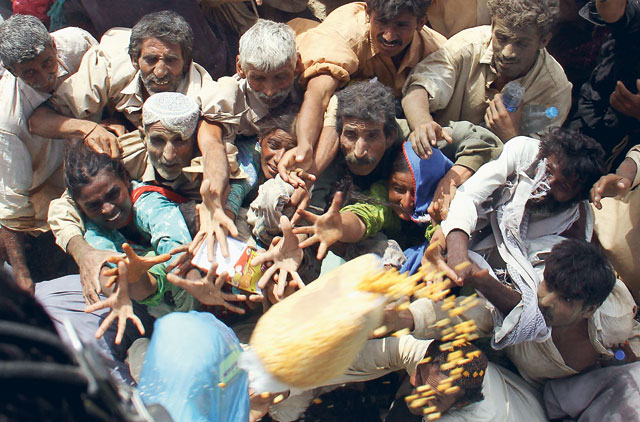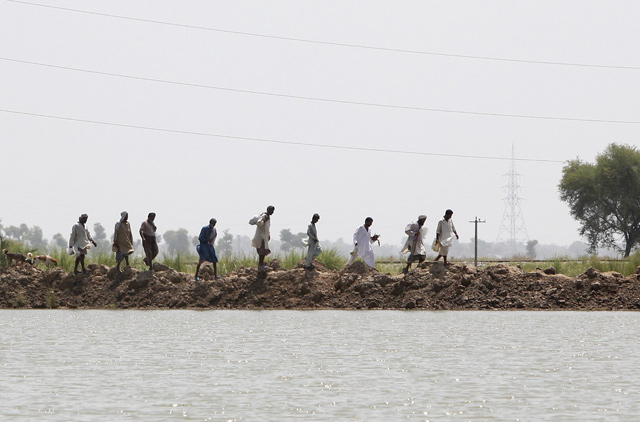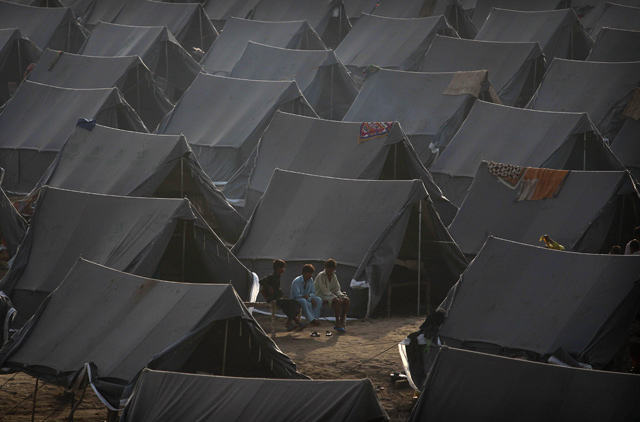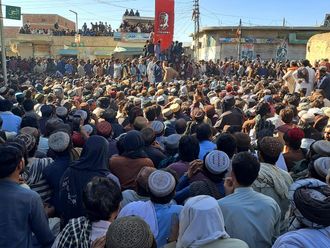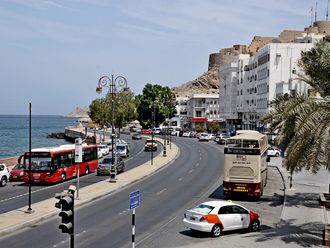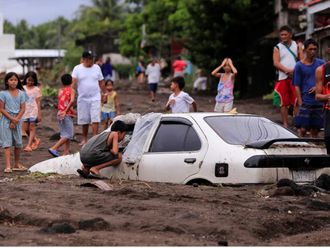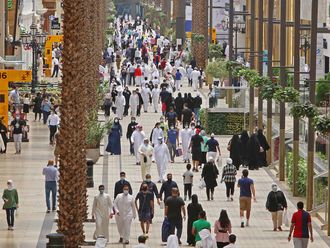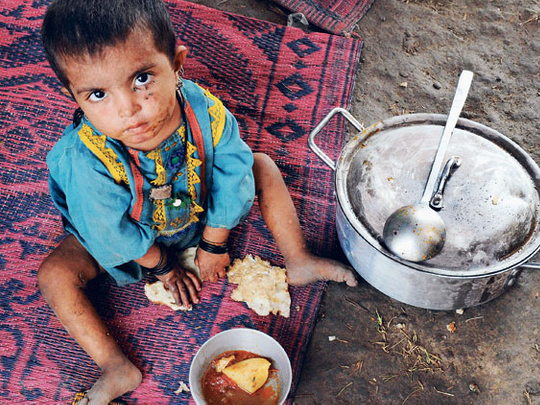
Shadadkot: More than $800 million (Dh2.94 billion) has been donated or pledged to help Pakistan's flood victims, the foreign minister said on Sunday, as hundreds of thousands of people in the south feared more destruction.
Rising waters in Sindh province threatened to wreak havoc in US ally Pakistan in a catastrophe that has made the government more unpopular and may help Islamist militants gain supporters.
Foreign Minister Shah Mahmoud Qureshi expressed gratitude for the $815.58 million in international assistance to ease the suffering from one of the worst disasters in Pakistan's history.
"In such a situation, when the West and Europe and America are in recession and donor fatigue is being discussed, this kind of solidarity for Pakistan, I think, is very encouraging," he told a news conference in Islamabad. The UN had appealed for $459 million in initial response funds.
The worst floods in decades have destroyed villages, bridges and roads made more than 4 million homeless and raised concerns that militants will exploit the misery and chaos.
Saleh Farooqui, director general of the disaster management authority in Sindh, said floods have hit at least four districts, including urban areas, forcing about 200,000 people to flee for higher ground in the last 24 hours.
"The south part of Sindh is our focus. We have diverted our resources for rescue operations towards that area," he said.
Officials expect the floodwaters will recede nationwide in the next few days as the last river torrents empty into the Arabian Sea, state news agency APP reported. But when that happens, millions of Pakistanis will almost certainly want the government, which was already constrained by a fragile economy before the flood, to quickly deliver homes and compensation for the loss of livestock and crops.
The government has been accused of moving too slowly and Islamist charities, some with suspected links to militant groups, have moved rapidly to provide relief to Pakistanis, already frustrated with their leaders' track record on security, poverty and chronic power shortages.
"My village has been inundated. We travelled several hours in a bullcart and now the dispensary is locked," said Shazia Bibi, standing outside a government health centre in Punjab province.
"Where can I take my husband? He cannot sleep because of pain. Whatever he eats he vomits it." Some were grateful for help from Islamist charities.
"We [used] to think they were terrorists but that's not right. They were first who came to help us," said Hidayatullah Bokhari, a 45-year-old farmer. "We don't want them to become our rulers but they're not bad guys."
The flood has been spreading through the rice-growing belt in the north of Sindh district by district, breaking through or flowing over embankments.
The Sindh town of Shahdadkot was largely deserted. Most shops shuttered, but some said they still would not leave. People who used tree branches and sandbags to plug holes in an embankment. "This is the place where I earn my bread and butter. I live here and will die here," said shopkeeper Mohammad Jaffar.
Pakistan said last week the floods meant the country would miss this year's 4.5 per cent gross domestic product growth target, while its fiscal deficit is now projected to widen to more than 8 per cent of GDP. Floods caused widespread crop damage.


